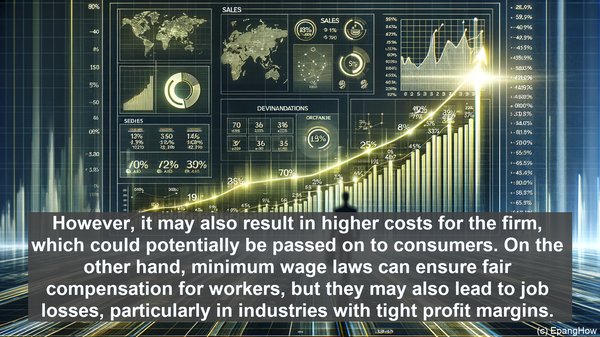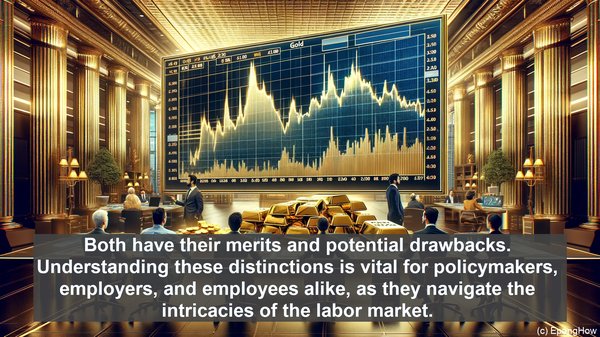Introduction: The Labor Market’s Complex Dynamics
Greetings, audience! The labor market is a multifaceted realm, influenced by various factors. Two such factors that significantly impact wage determination are efficiency wage theory and minimum wage law. While both relate to wages, they differ in their underlying principles and effects. Let’s dive deeper into these concepts.

Efficiency Wage Theory: Enhancing Productivity through Wages
Efficiency wage theory posits that higher wages can lead to increased productivity and reduced turnover. The rationale behind this theory is that when workers are paid more than the market equilibrium wage, they feel motivated to work harder, as they perceive the higher wage as a reward. This, in turn, can enhance their efficiency, leading to higher output and, consequently, higher profits for the firm. Moreover, the theory suggests that by offering higher wages, firms can attract a pool of talented and skilled workers, further bolstering productivity.

Minimum Wage Law: Ensuring a Decent Standard of Living
In contrast, minimum wage law is a government-imposed regulation that sets a floor on the wages that employers can pay their workers. The primary objective of minimum wage law is to ensure that workers receive a wage that enables them to meet their basic needs and maintain a decent standard of living. By establishing a minimum wage, the government aims to prevent exploitation and reduce income inequality. Additionally, proponents argue that minimum wage laws can stimulate consumer spending, as workers with higher wages have more purchasing power.
Implications on the Labor Market: Balancing Act
While efficiency wage theory and minimum wage law have distinct goals, they can both impact the labor market. On one hand, the implementation of efficiency wage theory by firms can lead to a more motivated and productive workforce. However, it may also result in higher costs for the firm, which could potentially be passed on to consumers. On the other hand, minimum wage laws can ensure fair compensation for workers, but they may also lead to job losses, particularly in industries with tight profit margins. Striking the right balance between these two approaches is crucial for a well-functioning labor market.
